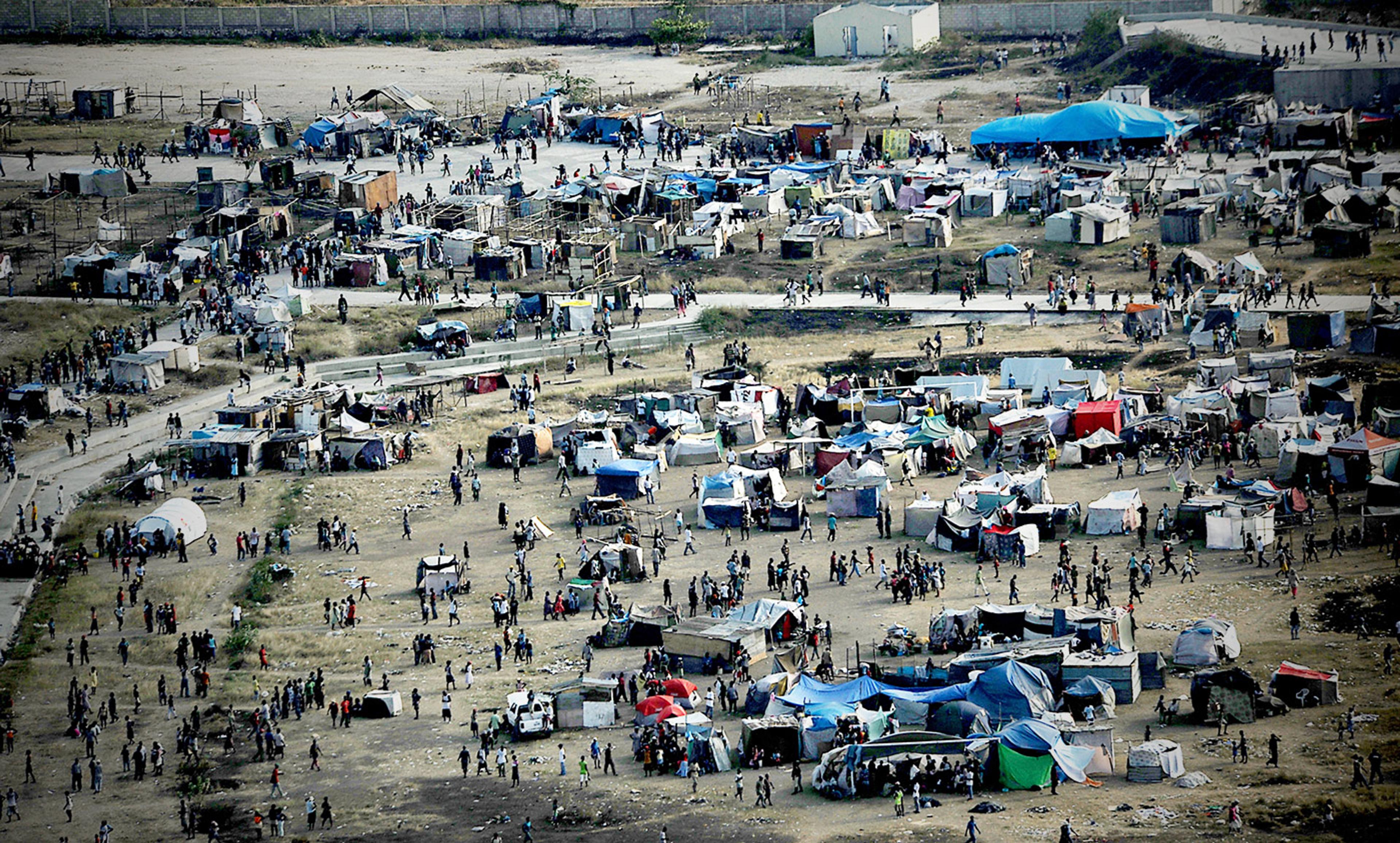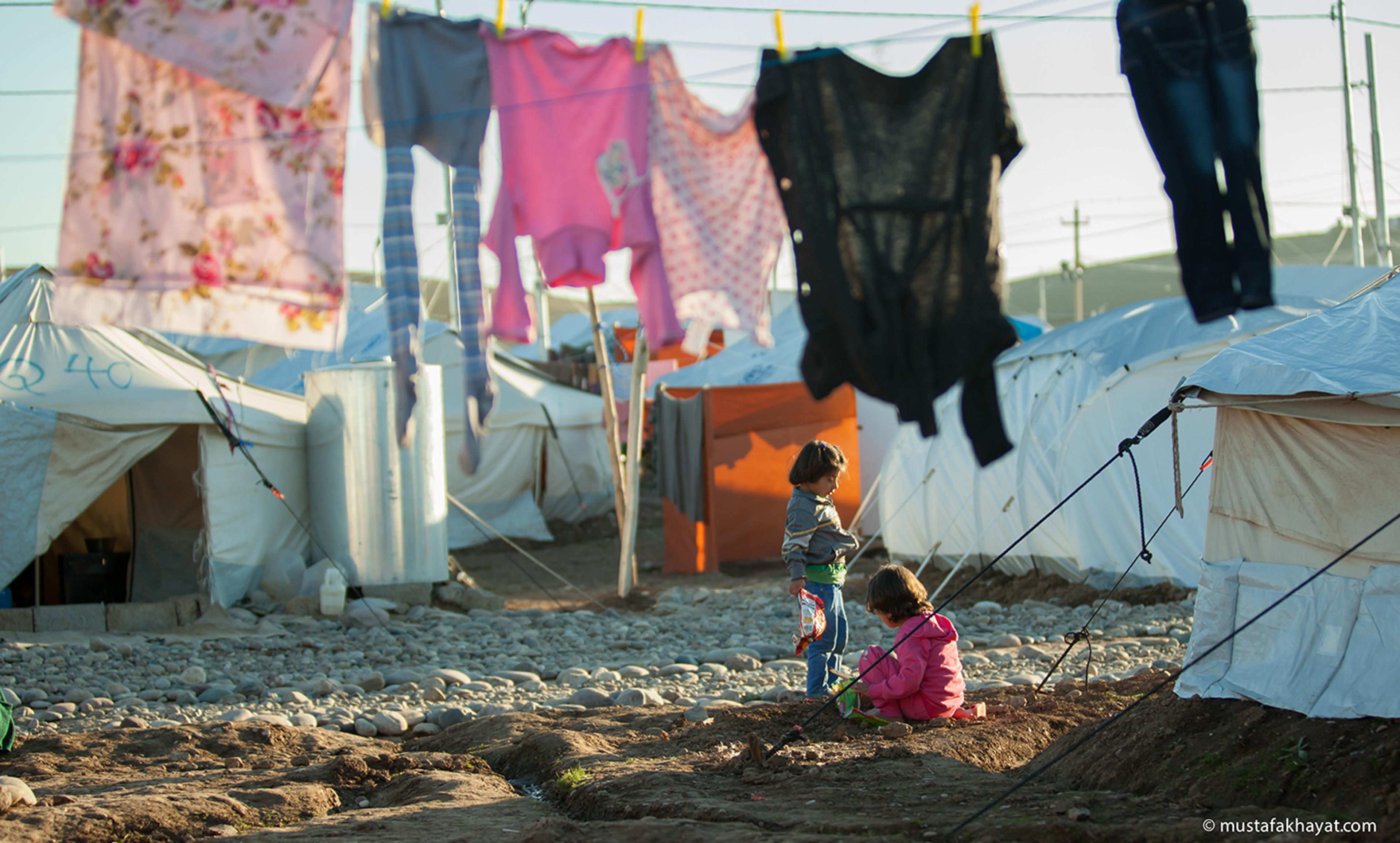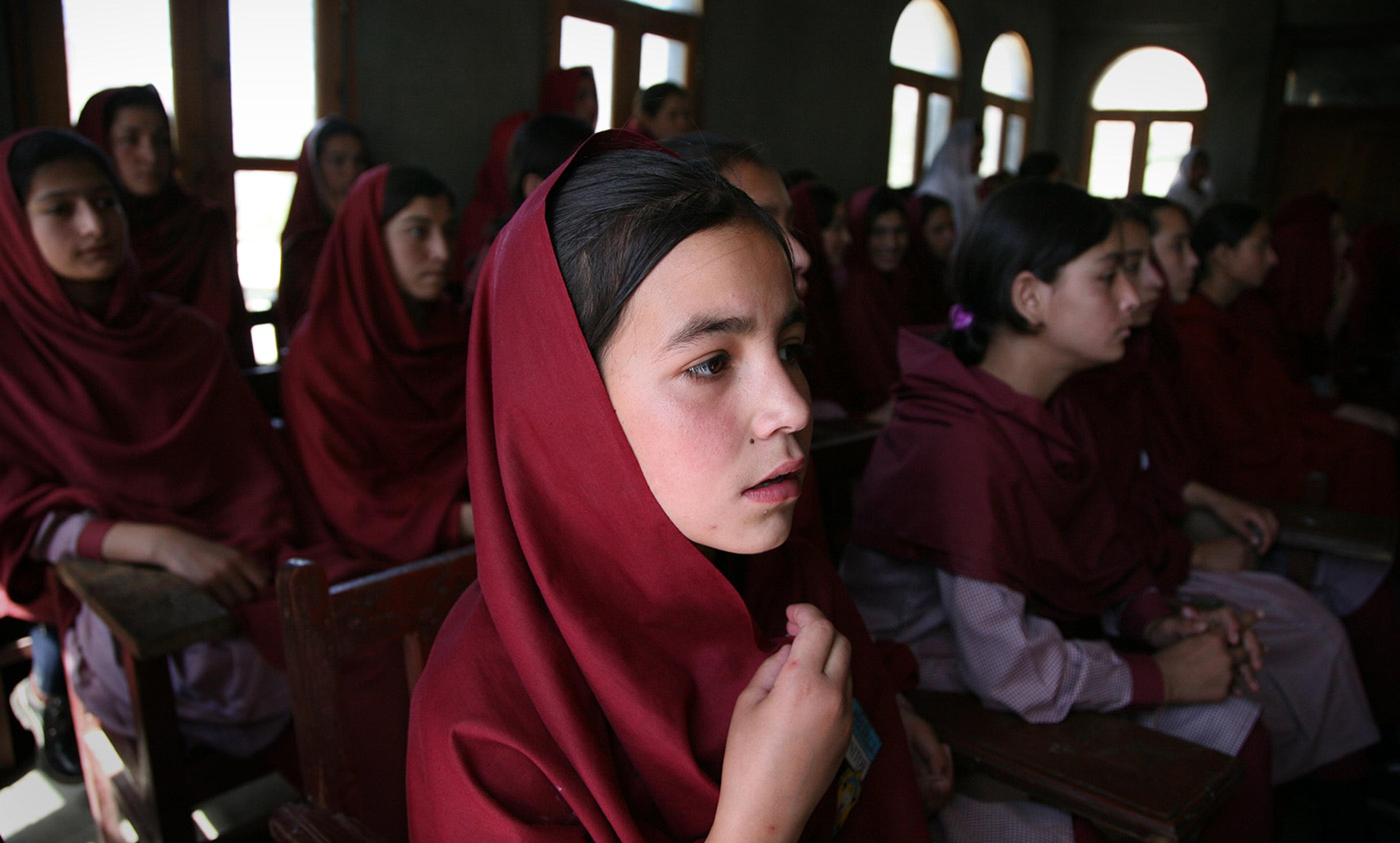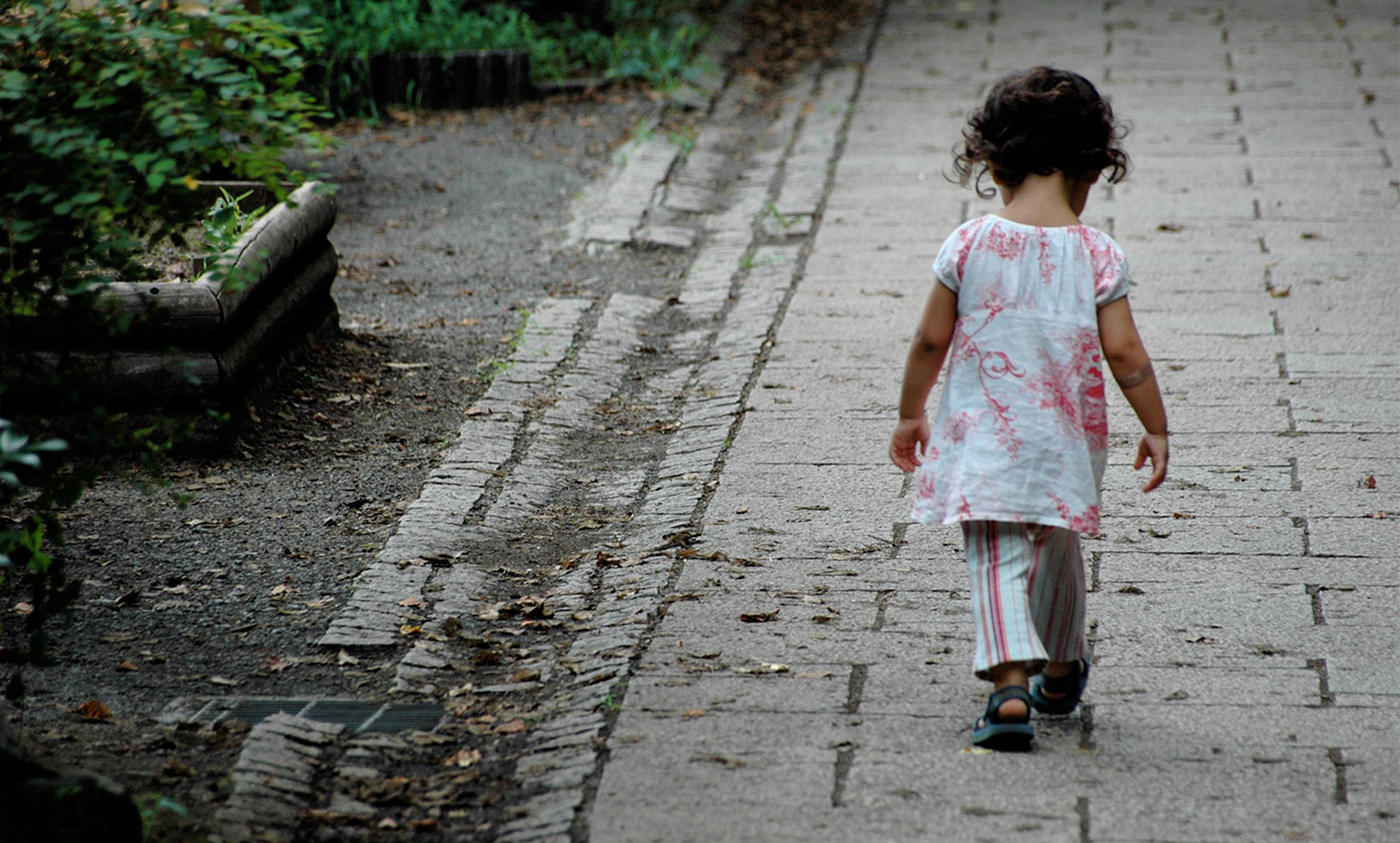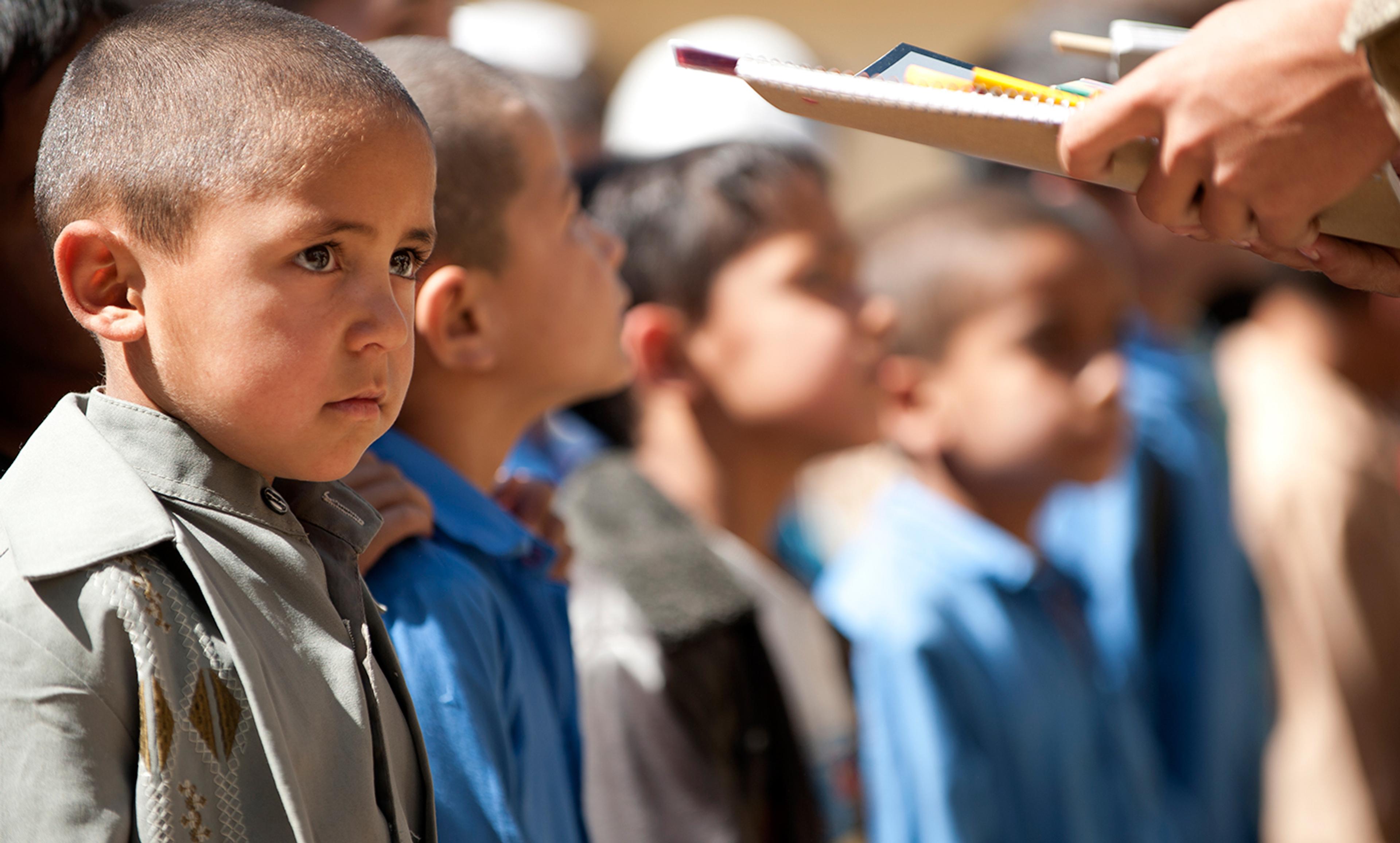Makeshift shelters in Port-au-Prince, 2010. Photo courtesy US Air Force
The aid industry might be having its #MeToo moment, but sexual exploitation is just a symptom of a more fundamental issue: the neo-colonial structures through which most aid is delivered in disaster and conflict areas. If this is not addressed, no amount of independent investigating committees and hotlines will solve the problem. I have been an aid worker for more than 25 years. I’ve mostly worked through structures that, while espousing the rhetoric of empowerment of the ‘beneficiaries’ and listening to their voices, marginalises, excludes and disempowers those it wants to help.
The aid effort after the 2010 Haiti earthquake provides a good example of just how those structures work: I spent six months in the first half of 2010 setting up and running a mental-health programme while working for a big international NGO. I lived in shared accommodation in a beautiful villa with a swimming pool and lush garden while my Haitian colleagues still lived in tents.
My situation made me intensely aware of the close similarity between the humanitarian enterprise in which we were all engaged and its imperial roots. In Empire of Humanity (2011), Michael Barnett, a historian of humanitarian affairs, criticises my generation of humanitarian actors for failing to see two important and related aspects of our work. Firstly, that we have turned compassion into a status symbol that feeds suffering, and indeed requires it to continually exist, so that humanitarian actors can feel good about themselves. Secondly, we have failed to recognise the degree to which an increasingly professionalised, centralised and bureaucratised humanitarian order is disempowering those it claims to assist, and replicating the paternalistic habits of our imperial forebears: all those missionaries bent on ending slavery and ‘enlightening the natives’, while relying on the colonial state to protect them.
I see all my humanitarian friends throwing up their hands in horror. So many of us come from rebellious, anti-political backgrounds, and regard humanitarianism as one step on the way to achieving those supposedly universal and apolitical values of justice, equality, a life free from want and oppression. There is nothing imperial about that project. Except…
Down at the airport in Port-au-Prince in 2010, the UN ran an organised city of containers with ventilation and power. This was an industrial landscape, the central hub for an army of well-meaning and well-paid foreign workers whose industry was the exercise of compassion and a more just world order. Meanwhile, the Haitians lived in tent shanty towns outside our gates, cooked our meals, cleaned our homes, drove our transport and provided security.
I worked with extraordinary Haitian professionals – doctors, nurses and psychologists – every day, but it was my Western colleague or I who went to the main coordination meetings. Apart from nominal Haitian government ministers, very few Haitians were to be seen at these, except those holding positions with international NGOs. The local self-help groups and neighbourhood associations that had sprung up everywhere lacked the knowledge, transport and credentials to make it to the UN site, and through the UN security system. Practitioners of the traditional healing systems – the priests, pastors and herbalists to whom the vast majority of Haitians turned for help – were not invited. In July, some 60 NGOs elected a steering committee to ensure ‘better coordination’. No Haitian agencies were there, so none were included.
Pétionville camp provided a nice example of what was happening. Before the earthquake, it was a golf course with a 1930s clubhouse, tennis courts and pool, all secure behind wrought-iron gates. For years, there had been a running battle between the US owners of the club and impoverished squatters who had glared with envy at the rolling green hills in the middle of their congested city. After the earthquake, some 60,000 people just moved in and set up their shelters on the steep hillsides.
Since the 82nd Airborne Division of the US military had established a logistics base in and around the clubhouse, the squatters didn’t actually occupy the buildings (or burn them down). Then the film star Sean Penn’s NGO took over the camp management, the troops moved out, and the US owners renovated the clubhouse. This made it a very pleasant place for aid workers like me to have meetings and conduct training before wading out to address the needs of the camp’s huddled masses beyond the fence at the bottom of the hill.
Revolution stopped in its tracks by charity.
In Mozambique in 2013, I worked for an agency in which well-paid aid workers drove to remote villages to ask impoverished farmers to put aside mango-harvesting or rice-growing, and volunteer their time for nothing, to run preschools. When I suggested requesting World Bank funding for local salaries, I was told that was ‘unsustainable’ – although this was apparently not the case for the complex bureaucracy of NGO and government officials administering the bid.
In Greece in 2016, I collaborated with a small self-organised group of refugees who wanted to provide psychosocial services for the families in a camp. I watched while the international NGO in charge of the camp did everything in its power to marginalise and disempower them, ripping down their handmade signs, forbidding them to wear jerkins with a logo, bringing in an international NGO to run the school they had started. Yet it was the refugee group that organised the regular voluntary litter clean-ups and the communal hang-out spaces that defused the interethnic conflicts dogging other camps; it was the refugee group to whom women in need of protection turned at night. International staff were not available. They had gone home to their beds.
If we are serious about not exploiting the most vulnerable, we have to empower them. This is not just about working in collaboration with government counterparts, but about handing power directly to those most affected. How about developing mechanisms for putting all that aid money directly into the hands of those affected and letting them decide exactly how it should be spent? Then they won’t need to sell themselves or their children. Not a new or original idea, but surely one whose time has come.
This is adapted from the author’s memoir, Outside the Asylum.
